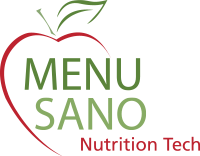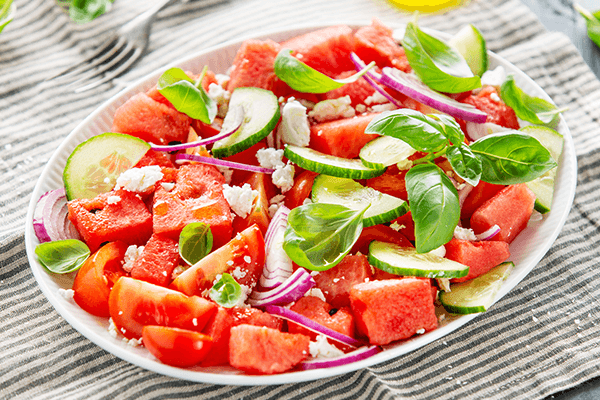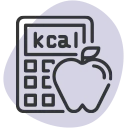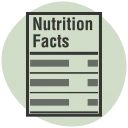Food is an essential element for survival. But the interesting fact is that nutrients present in the food actually responsible for supplying all the necessary elements for normal functioning of our body and managing overall health. Therefore, wise selection of food items which are rich in required essential nutrients can prevent specific chronic diseases. In certain cases, nutrients present in food items also control the progression and/or complications of the chronic ailments. In this article, we discuss some chronic illness and their prevention and management through nutrient adjustment.
Hypertension and cardiac disorders
In normal healthy individuals, systolic blood pressure is 120 mmHg and diastolic blood pressure is 80 mm Hg and medically it expressed as 120/80 mmHg normal blood pressure. When the blood exerted more than 140/90 mmHg pressure to the blood vessel wall is termed as hypertension. Hypertension is the chronic single most responsible cause of leading non-communicable diseases involving life-threatening complications such as heart attacks, strokes, kidney failure, and premature mortality. It may provide some relief that hypertension can be prevented and controlled by dietary approaches. Experts recommended following lifestyle measures to prevent and control hypertension:
- Individual need to follow Dietary Approaches to Stop Hypertension (DASH)
- Body weight management
- Two and half hours per week physical exercise
- Moderate intake alcoholic beverage, if the individual has the habitual
The calorie intake per day varies depending on the age, gender, and physical activity level of an individual. [2] The usual onset of hypertension is after 4 decades of life. Serving of each food items per day is very important to manage the calorie level and accomplishment of essential nutrient supply for an adult individual with 40 years or above age. Low salt diet is specifically recommended for hypertensive patients. Therefore select the food items, which are labeled as ‘low sodium or unsalted or sodium free’. Medical experts suggested following dietary guidelines to control chronic hypertensive condition:
- Try to eat 2,300 mg level of sodium per day at the initial phase and that need to gradually reduce to 1500 mg level. Baked foods, canned foods, soy sauce, processed food items, etc. are strictly ‘no’ for hypertensive patients, as this food nutrient contains more than 20 percent of Daily Value of sodium.
- Add maximum fruits and vegetables, which are rich source of potassium, magnesium and fibers like apricots, apples, grapes, bananas, dates, mangoes, melons, oranges, peaches, strawberries, pineapples, raisins, broccoli, green beans, carrots, green peas, kale, spinach, tomatoes, lima beans, squash, potatoes, sweet potatoes etc.
- Select of whole grain food items like whole wheat bread, whole wheat pasta, brown rice, pita bread, oatmeal, unsalted popcorn, etc.
- Low-fat milk and milk products are rich sources of calcium are also included in the nutrient list require for hypertensive patients.
- Lean meat and skin removed poultry can be provided the required amount of protein to hypertensive patients or pre-hypertensive individuals. These foods have a lesser risk to elevate blood pressure level.
- Saturated fat and a trans-fat containing food items are strictly restricted to hypertensive patients. These foods can increase the risk of arterial blockage, which causes cardiac disorders.
Read more: Foods with Omega-3 Fatty Acids (and why you should eat them!)
Diabetes
Diabetes is a chronic hyperglycemic (increase blood glucose level) condition occur due to insulin resistance. There is no medication, which can cure diabetes, but available treatment assists to regulate the blood glucose (a type of sugar) by controlling blood glucose level. Dietary nutritional substances play an important role to control this chronic problem. In addition, body weight management is another lifestyle measure to limit the complications associated with diabetes.
- Refined carbohydrates food items and highly processed carbohydrate-containing foods are strictly restricted to diabetic patients. These food items have lower fiber content and high glycemic index, which trigger the elevation of blood glucose level.
- High fiber-rich food items, including whole grain cereals and vegetables; less glucose containing fruits can improve diabetes. These dietary regimen stimulates insulin release and reduces the risk of increased blood sugar level after food intake (post-prandial blood glucose level).
- All saturated and trans fat-containing foods need to replace with monounsaturated and polyunsaturated fat, which reduce the scope of diabetes-related complications.
Read more: Natasha’s Law and New Labelling Requirements
Cancer
Cancer is one of the fatal conditions often initiates suddenly. Our lifestyle and eating habit play a major role in cancer development. Dietitians always encourage to intake lots of fresh fruits and vegetables due to their antioxidants property, which prevents cancer risk. Whole grain products are also enlisted in the dietary requirement for cancer prevention and management, as they assist in calorie management, metabolic functioning and body weight management. Moderate amount of dairy products and lean massed animal sourced proteins are also essential for the proper physiological functioning of the body. Limited intake of sugar, excessive salt, and trans fat-containing foods are highly suggested. Cancer patients usually have many symptoms, which causes anorexia. The low appetite also provided a negative impact on cancer treatment. Therefore, experts recommend following healthy, tasty food items for cancer patients:
- Avocado, nuts and seeds, peanut butter, yogurt, pasteurized hard cheese, dried fruit need to add in the platter of the cancer patient to supply sufficient calorie to maintain the energy level.
- Tofu, tuna, chicken, hard-boiled eggs, soy beverages, and legumes are good sources of protein and help to pursue and maintain regular physiological functioning.
- Patients often experienced some cancer treatment-related side effects like constipation, metallic taste, diarrhea, nausea, and vomiting. Smart selection of dietary items can help to reduce the intensity of chemotherapy-related side effects. For example:
- A mixture of flax seeds and probiotic yogurt is good for alleviating constipation.
- Citrus fruits like lemon added to the recipe may help to reduce metallic taste.
- Plenty of water and low fiber-containing fruits like banana, melon, peeled off mashed potatoes can help to control diarrhea.
- Ginger ale, herbal tea can help to reduce nausea and vomiting tendency.
Read more: Simple Solutions to Improve Your Diet
Gastrointestinal tract disorder
Gastroesophageal Reflux Disease (GERD) is one of the most common upper GI tract disorders. Addition and deletion of certain nutritional substances can help to control this chronic problem and also reduce the associated complications.
- Fruits like banana, pears, melon, apple, peaches are good for controlling GERD. But all the citrus fruits like lemon, orange, pineapple, grapefruits need to avoid. Because the acid content of these fruits exaggerated the symptoms.
- Vegetable soups (except tomato soup) or low-fat chicken soup is also favorable for patients with GI tract disorders.
- Cold, low fat, skim milk and probiotic, fat-free yogurts are good to control GI tract disorders.
- Spicy foods and high-fat containing foods are strictly restricted to patients with GI tract disorders. Spicy foods and high-fat food items also induce excessive gastric secretion and irritate the gastric mucosa, which causes gastric pain.
Read more: Benefiting from the Slow Season: A Guide for Restaurants
Kidney diseases
The planned meal is very important for kidney disease. Certain nutrients aggravate the kidney disease by triggering associated physiological disorders. Moreover, the correct amount of each nutrient is also essential for kidney disease. Higher intake of minerals like sodium, potassium, phosphorus and protein and fat-containing foods are harmful to kidney patients.
- Low salt and sodium-containing foods are especially recommended to control the blood pressure in kidney patient. Hypertension can adversely affect the kidney functioning.
- Low protein diet, like a small quantity of plant-protein containing food items like bean, nut, and grain are preferable options. However, little intake of chicken, fish, and egg are also allowable to kidney disease patients.
- Corn, rice can be added to the plate due to their fewer phosphorus contents. Whereas, phosphorus-containing foods, like oatmeal, bran cereals, meat, canned foods are restricted.
- Higher intake of potassium-containing foods can increase the risk of kidney disease associated cardiac disorders. Therefore, low potassium containing food items like cooked rice, wheat products, green beans, carrot, apples and peaches are good options for them.
Osteoporosis
Elderly persons often suffer from different chronic bone and joint related disorders, including osteoporosis. Calcium, magnesium and potassium are three essential minerals for bone health. However, deficiency of Vitamin D also increases the risk of bone and joint disorders. Vitamin D, vitamin C and vitamin K are important nutrients for maintaining bone and joint health.
- Fortified beverages are highly preferable like soy milk, rice milk etc., which can supply sufficient amount of vitamin D and calcium.
- Low fat milk, cheese and yoghurt are dairy substances recommended for calcium supply. These items are also fortified to make vitamin D enrich product.
- Tuna, salmon, sardines, and mackerel fishes are good source of calcium and vitamin D.
- Mineral composition of spinach, beet, raisins, artichokes broccoli etc. are ideal for maintaining the bone health.
Read more: The Ketogenic Diet: A Quick Guide
Conclusion
Someone rightly said “You are what you eat”. Taking care of your eating habits and diet becomes even more important in management of chronic disease. MenuSano is designed to help people like you looking for solution to maintain nutrition and keep your diet healthy.



















